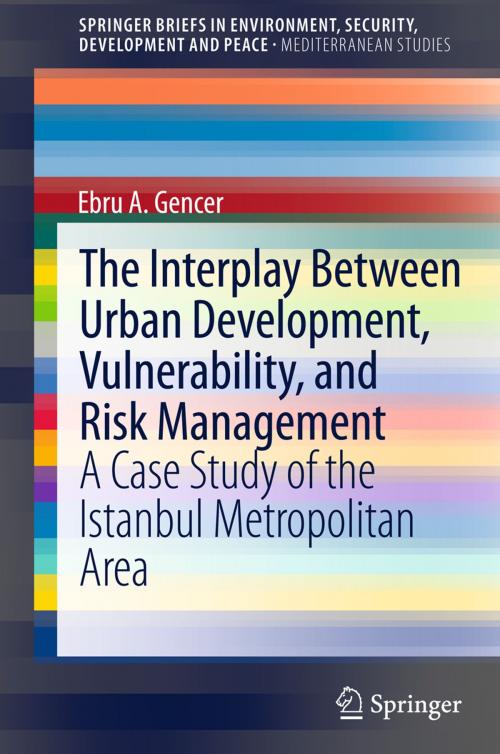The Interplay between Urban Development, Vulnerability, and Risk Management
A Case Study of the Istanbul Metropolitan Area
Nonfiction, Reference & Language, Law, Environmental, Science & Nature, Nature, Environment, Natural Disasters| Author: | Ebru A. Gencer | ISBN: | 9783642294709 |
| Publisher: | Springer Berlin Heidelberg | Publication: | June 19, 2013 |
| Imprint: | Springer | Language: | English |
| Author: | Ebru A. Gencer |
| ISBN: | 9783642294709 |
| Publisher: | Springer Berlin Heidelberg |
| Publication: | June 19, 2013 |
| Imprint: | Springer |
| Language: | English |
Natural disasters are increasingly affecting the world, taking lives unexpectedly and leaving many others injured and homeless. Moreover, disasters disrupt local, national and even global economies, instantly changing the direction of development. In the first half of 2011 alone, 108 natural disasters occurred, killing over 23 thousand people, affecting nearly 44 million others and causing more than 253 billion US dollars of economic damages (CRED 2011,1).
Large urban settlements have become increasingly vulnerable to the impacts of natural disasters. The concentration of substandard infrastructure and housing, material assets, and inherent socio-economic inequalities increase vulnerability to disasters in large urban areas, especially in developing countries. The size, number, functions, and geographical distribution of large- and megacities create a special concern for disaster risk.
Good urban management practices can be a powerful catalyst for reducing losses from natural disasters, while simultaneously helping to develop a sustainable environment. Yet, the existing situation indicates that sustainable planning and risk management measures are not taken into consideration or may not be put into practice for a variety of financial, political, and social reasons. This book argues that, on one hand, socio-economic disparities resulting from unsustainable urban development can increase vulnerability to natural hazards, and on the other hand, when paired with natural hazards this increased vulnerability can negatively affect urban areas, resulting in further inequality. This book will showcase this argument with theoretical reviews and quantitative analyses on the interplay between sustainable development and disaster vulnerability as well as an in-depth case study of the role of urban planning and risk management practices in creating the socio-economic and spatial vulnerabilities and predicted earthquake risk in the megacity of Istanbul.
Natural disasters are increasingly affecting the world, taking lives unexpectedly and leaving many others injured and homeless. Moreover, disasters disrupt local, national and even global economies, instantly changing the direction of development. In the first half of 2011 alone, 108 natural disasters occurred, killing over 23 thousand people, affecting nearly 44 million others and causing more than 253 billion US dollars of economic damages (CRED 2011,1).
Large urban settlements have become increasingly vulnerable to the impacts of natural disasters. The concentration of substandard infrastructure and housing, material assets, and inherent socio-economic inequalities increase vulnerability to disasters in large urban areas, especially in developing countries. The size, number, functions, and geographical distribution of large- and megacities create a special concern for disaster risk.
Good urban management practices can be a powerful catalyst for reducing losses from natural disasters, while simultaneously helping to develop a sustainable environment. Yet, the existing situation indicates that sustainable planning and risk management measures are not taken into consideration or may not be put into practice for a variety of financial, political, and social reasons. This book argues that, on one hand, socio-economic disparities resulting from unsustainable urban development can increase vulnerability to natural hazards, and on the other hand, when paired with natural hazards this increased vulnerability can negatively affect urban areas, resulting in further inequality. This book will showcase this argument with theoretical reviews and quantitative analyses on the interplay between sustainable development and disaster vulnerability as well as an in-depth case study of the role of urban planning and risk management practices in creating the socio-economic and spatial vulnerabilities and predicted earthquake risk in the megacity of Istanbul.















